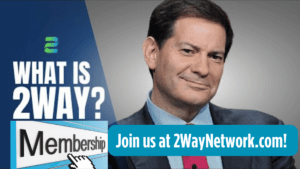Introduction: Retirement Planning Playbook
The beginning of each new year presents a great opportunity to reflect about whether your Retirement Plan is on track for the coming year. Setting “New Years Resolutions” with no actionable goal or next steps is just not a great plan for the new year or in this case – the new decade.
Recent tax law changes and the passage of the retirement SECURE Act, makes now an excellent time Retirement Planning Playbook to see if you are on track to meet your short and long-term goals.
Here are some important areas to consider in your retirement planning.
Key Points: Retirement Planning Playbook
Retirement is when “work” becomes optional. Whether you expect a typical full-retirement or a career changer, determine an appropriate balance between spending and saving.There are many options available for saving for retirement. BayRock can help you understand which options are best for you.
Tax Planning
Tax Mitigation – Retirement Planning Playbook
- Make sure you are implementing tax reduction strategies such as maximizing your retirement plan contributions,
- HSA contributions,
- FSA distributions,
- ROTH conversions,
- tax-loss harvesting your portfolios,
- smart tax-efficient charitable contributions, and
- review your current year tax projection based on your income and deductions year to date and how that may be different from previous years.
- Review our year-end Retirement Planning Playbook checklist.
Wealth Management
Estate – Retirement Planning Playbook
Have you ever seen a flowchart of your current estate plan? It helps to visualize what would happen to your assets and how the current estate tax law would impact you and your beneficiaries. Maximize the increased estate tax exemption (set to expire in 2026!)
Be sure that all of your estate planning documents are up to date.
- Review and update your will,
- Deploy an effective power of attorney,
- Review health care documents,
- Update trust agreements (especially with IRAs now that the SECURE Act has passed)
- Review your beneficiary designations
- Coordinate your desired estate distribution strategies.
Significant life events such as marriage, divorce, or the death of a spouse makes estate planning review even more important.
Investment – Retirement Planning Playbook
- Market volatility can feel uncomfortable.
- Market declines are a natural part of investing. Understanding your risk level – this is vital.
- Stress Test your portfolio quarterly to see how it would respond in the event of a recession.
- Review your Asset Allocation to reaffirm that your current investment allocation is aligned with your financial goals.
- Regular portfolio rebalancing will help to keep the appropriate amount of risk in your investment portfolio.
Cash Management – Retirement Planning Playbook
- Cover Two Years of living expenses.
- Avoid forced selling of equities in a down market.
- Review expected distributions from any mutual funds.
- If you recently purchased a mutual fund (or have a fund with a holding-period loss or small gain).
- One of our BayRock CFP® Professionals can help you check with your fund company to see if there will be a large capital gain distribution.
- Capital gain distributions will be taxable to you (even if you actually lost money in your mutual fund).
- Consider selling the fund before the distribution in order to avoid the tax hit.
TAX TIP: These distributions occur annually – typically in December.
Charitable Giving – Retirement Planning Playbook
- There are many ways to mitigate taxes, including making charitable gifts.
- Consider donating appreciated stock to get a full deduction of the value and avoid paying capital gains taxes.
- If you own a high concentration of stock positions with a low-cost basis, these securities can be excellent candidates for charitable contributions.
Making direct gifts to charities from your retirement accounts (if you are over age 70 ½ is known as Qualified Charitable Distributions (QCD).
- QCD generally does not add income to your return and it counts as part of your required minimum distributions (RMD) for the tax year.
- Consider bunching charitable deductions by deferring donations to next year or making your planned donations ahead of time.
- Consider a private foundation or donor-advised fund for your charitable giving (especially if your numbers are large).
- Charitable contributions need to be locked-in by year-end to get a deduction.
- Consider a Charitable Remainder Trust to provide a stream of income while you’re alive, leaving the remainder to a charity of your choice.
Spending – Retirement Planning Playbook
- Review your annual spending and plan for next year.
- Understanding your cash flow needs is an important aspect of determining if you have enough money to meet your goals.
- If you are retired, it is important to maintain a tax-efficient, safe and sustainable withdrawal strategy to cover all your spending needs.
- If you have not yet reached age 70 ½, it is good to ensure you’re making tax-efficient withdrawals.
- If you are over age 70 ½ make sure to take your required minimum distributions (RMD).
- Penalties are significant – up to 50%!
- Maximize income from Social Security and Pensions.
Risk Management – Retirement Planning Playbook
Catastrophic events like hurricanes serve as a powerful reminder to make sure your property and casualty insurance coverages are available – and up to date – when you need them. BayRock offers a Free Gap Analysis which includes a thoughtful review of your overall insurance program, including any old annuities you may have in place.
Review all your insurance coverage.
If you are in a Federal disaster area, there are additional steps to recover what you can and explore the tax treatment of casualty losses.
Other areas of risk management include
Long-term care Insurance, Disability Insurance, Business Insurance. Life Insurance, There are both term and permanent options available for life insurance.
Some life insurance policies can help you save tax-deferred for retirement.
Education Funding – Retirement Planning Playbook
Funding education costs for children or grandchildren takes a little planning.
- Increase in college costs has slowed lately but Education planning is still a major expense for most families.
- Get yo know all the options available to save for education and identify your best options.
- Funding a 529 plan comes with tax benefits, so making contributions before the end of the year is key.
- With the added flexibility of funding k-12 years (set at a $10,000 limit), 529 accounts become even more advantageous.
- If you have kids in college, it is also important to understand the rules when it comes to taking 529 Plan withdrawals tax-free.
- Don’t forget to submit your reimbursements prior to year-end.
Elder Care – Retirement Planning Playbook
There are many financial planning elements to consider as you age, and it is important to consider these things sooner rather than later.
- Planning for incapacity is critical.
- There are many issues to consider when caring for aging parents or other loved ones.
- Having a plan in place for who will handle your financial affairs should you suffer cognitive decline is also critical.
- Make sure your spouse and/or family understands your plans.
- Reduce family conflicts by having your wishes clearly communicated in advance.
Business Strategy – Retirement Planning Playbook
If you own a business, you should be paying close attention to your year-end planning.Congress is constantly making tax law changes that impact many businesses and the tax they or their owners pay.
199A is a New Tax Code section for businesses and it impacts business owners who are properly structured, providing the benefit of deducting an additional 20% for the net income of their taxes:
- S Corp,
- Partnership,
- Single Member LLC or
- Sole Proprietor
Big Tax Savings for Business Owners
For many business owners, 199A can be a big tax saving strategy.
- The rules are complicated and require that you plan at year-end to maximize your potential deduction.
- The new tax law includes two new changes that limit the amount of interest may deduct and no longer allows net operating losses to be carried back to prior years.
- You can only carry operating losses forward with a limit of what you can deduct in any year.
- If you are looking to start giving your employees more benefits and are considering setting up a qualified retirement plan, some options are required to be in place before the following calendar year depending on which plan is right for you.
A BayRock CFP® Professional can help you determine which plan is right for your business.
- 401K, SEP IRA,
- Defined Benefit Plan or
- Simple IRA plan,


